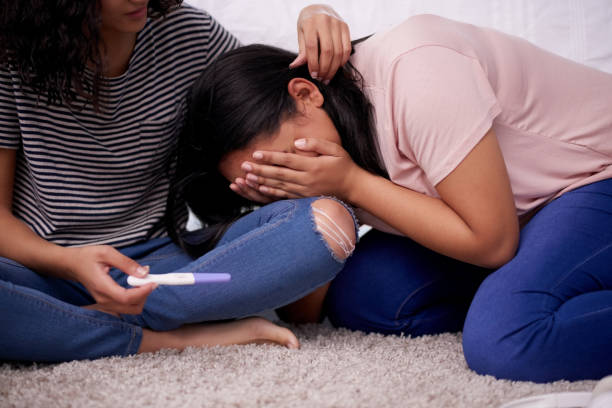 June 27, 2020 5 years ago leave a comment 7769 Views Likes:
4
June 27, 2020 5 years ago leave a comment 7769 Views Likes:
4 Khadija my mother whose milk nourished me, whose womb sheltered me for nine months and whose arms were my safe place, but she was also part of a statistic of young mothers, she had me at 15 which has become the norm in my society with 31.5% of pregnancies being adolescent pregnancies in Nigeria.
According to WHO, an adolescent –which includes teenagers- is a person within the age of 10 to 19. During this period, an individual progresses from the initial appearances of secondary sexual characteristics to full sexual maturity, and psychological and emotional processes develop from those of a child to those of an adult. In simple words, this is the period a child grows into an adult.
Teenage Pregnancies have been on the rise in Nigeria due to socioeconomic reasons, rape, lack of sex education, and child marriage. Teenage pregnancies are typically regarded as a negative occurrence due to the negative consequences on the health and well-being of the teenage mother and her child. In northern Nigeria, there is a higher rate of teenage pregnancy than the south due to the low level of education, child marriage, and cultural norms.
Teenage pregnancy complications are enormous. They range from physical complications to psychological complications.
Obstetric fistula is one of the most severe childbirth-related complications. The small size and physical weakness of many young pregnant girls makes it extremely difficult for them to give birth to a child. Delivery is therefore often prolonged and during childbirth, the girl’s perineum often tears, leaving hollow space between the bladder and/or the rectum and the vagina. This could result in the young mother losing control over her bladder and bowel, being unable to bear more children, and/or finding sexual intercourse painful. A Fistula between the bladder and the vagina is called vesicovaginal fistula (VVF) and between the rectum and vagina is called recto-vaginal fistula (RVF).
Physical consequences also include reproductive organ damage, such as uterine rupture, amenorrhea, and uterine scarring resulting in secondary infertility; dermatological conditions, resulting in excoriations and infections; neurological damage, resulting in weakness in the leg and foot and renal damage, resulting in decreased kidney function. women also report genital soreness; painful intercourse; constipation; and unpleasant odor, despite frequent washing and pad changes.
As devastating as the physical outcomes of obstructed labor are the psychological effects.
A stillborn child is the most frequent result of such delivery. Women with fistulae often face the pain of losing their child and humiliation from their smell. Obstetric fistulae lead to severe sociocultural stigmatization, and women with obstetric fistula face severe mental health issues, fistula can be repaired through surgery or the use of urine catheter but only about 7% of women with it get adequate treatment, due to the stigmatization and abandonment many young mothers face from families, they end up as sex workers to be able to provide for themselves.
Young mothers also have higher risks of postpartum depression due to family conflict, low self-esteem, and less social support.
Adolescents can protect themselves from the consequences of teenage pregnancies by doing the following:
The Society can also help by: